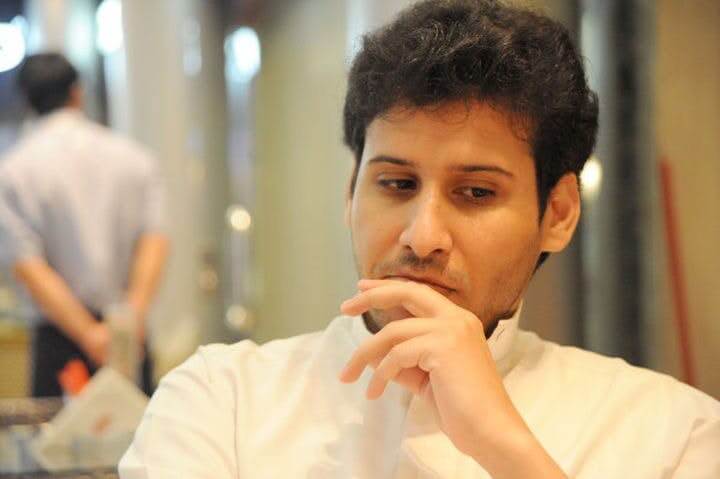Today marks two years since a criminal court arbitrarily sentenced Saudi Arabian award-winning human rights lawyer Waleed Abu al-Khair to 15 years in prison. On this occasion, Human Rights Foundation (HRF) has submitted an urgent appeal to the UN Working Group on Arbitrary Detention (WGAD) requesting that it reiterate its call to the Saudi Arabian government to release Abu al-Khair. HRF has also published a comprehensive legal report documenting the numerous violations to his right to freedom of expression under international law.
“Waleed Abu al-Khair is one of the most prominent figures of Saudi Arabia’s beleaguered civil society. He has challenged the regime by representing victims of human rights violations, including prisoner of conscience Raif Badawi, and by using social media to call for liberal democratic reform in the authoritarian theocracy,” said HRF president Thor Halvorssen. “HRF’s report is the first complete legal analysis exposing the bogus charges under which Abu al-Khair was convicted, including the charge of ‘inciting public opinion.’ He should be released immediately,” said Halvorssen.
On October 6, 2013, in response to his activism via Twitter, a case was filed against Abu al-Khair before the criminal court in Jeddah for “harming the reputation of the Kingdom,” “inciting the public opinion against the Kingdom,” and “subverting public order in the Kingdom,” under the anti-terrorism law and the anti-cyber crimes law. He was sentenced on July 6, 2014, to 10 years in prison, a fine of 200,000 Riyals (approximately $53,000 dollars), and a 15-year travel ban following his imprisonment. On January 12, 2015, the court of appeal upheld the conviction and extended the sentence from 10 to 15 years because Abu al-Khair refused to apologize for his actions.
Abu al-Khair has been imprisoned since April 2014 and has been transferred several times to different prisons from Jeddah to Riyadh. He was subjected to sleep deprivation, solitary confinement, and denied access to his lawyer and family. Abu al-Khair was last transferred to Dhahban prison, located outside of Jeddah. On June 7, he started a hunger strike to protest the ongoing ill treatment by prison authorities, including denying him access to his medicine and to his books. On June 12, Abu al-Khair ended his hunger strike after authorities slightly improved his conditions.
HRF’s 60-page legal report concludes that Saudi Arabia has violated Article 19 of the Universal Declaration of Human Rights (UDHR), in the case of Abu al-Khair. Although not a party to the International Covenant on Civil and Political Rights, Saudi Arabia is a member of the United Nations and its government is therefore required to comply with the provisions of the UDHR. On October 26, 2015, WGAD found Abu al-Khair’s imprisonment to be arbitrary.
“Authoritarian regimes typically use vague and overly broad incitement and defamation laws to silence legitimate criticism. Waleed Abu al-Khair’s imprisonment on charges of ‘harming the government’s reputation’ and ‘inciting public opinion’ is a prime example of this illegal trend,” said Javier El-Hage, chief legal officer of HRF. “Saudi Arabia’s dictatorship is not alone in this. Holding an open mic event at Plaza de la Revolución or reading Hannah Arendt’s ‘The Origins of Totalitarianism’ can similarly land you in a Cuban jail for ‘inciting disorderly conduct.’ And in China, the 2010 Nobel Laureate Liu Xiaobo is still in prison for ‘incitement to overthrow the government’ because he circulated a pro-democracy manifesto,” he added.
Last week in a phone call with HRF, Abu al-Khair denounced that the public prosecutor has offered on several occasions to have him released if he repents for his crimes. He has declined the offer repeatedly.
Read the urgent appeal to the UN Working Group on Arbitrary Detention here.
Read HRF's legal report on Waleed Abu al-Khair here.
